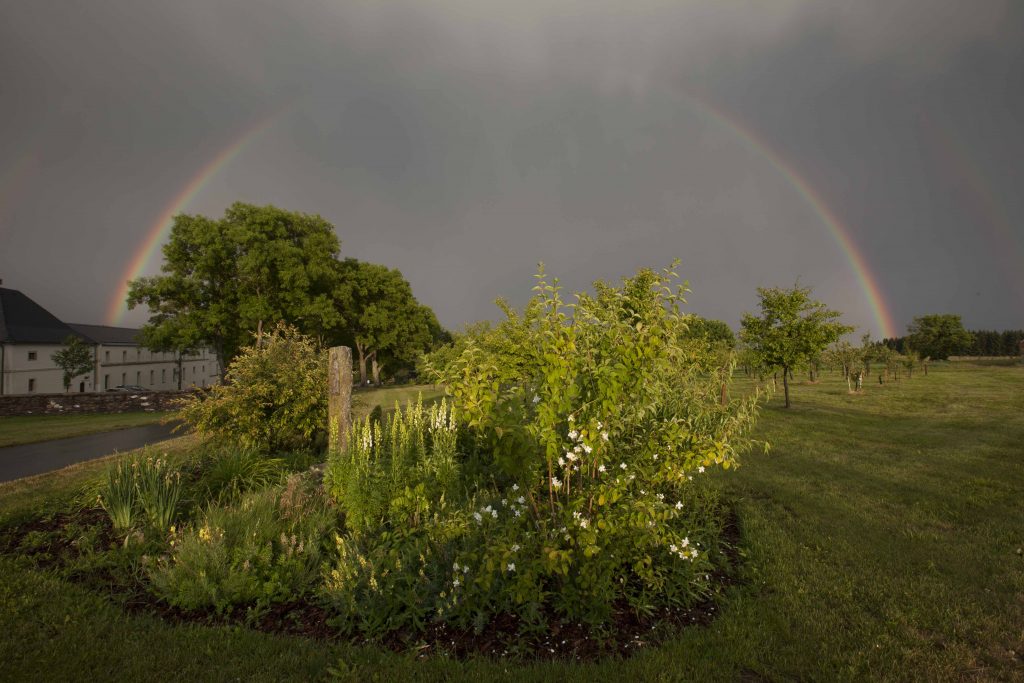The monastery and its neighbours

Their relationship monks have with modern society is both distant and close. Distant, because they try not to get involved in social debate. Close, because the monks are concerned about the world they live in; they are interested in how it is changing and they play a role in this world by consecrating their lives to God.
“I will go before you and will level the mountains; I will break down gates of bronze and cut through bars of iron. I will give you hidden treasure and riches stored in secret places…so that you may know that I am the Lord, the God of Israel, who summons you by name”
(Prophet Isaiah 45, 2-3)

Nový Dvůr is situated in a remote place with a harsh climate, on a wooded hill near the hamlet of Dobrá Voda. The former farm, which was built for the Premonstratensian monastery in Teplá by the Baroque architect Kilian Ignatius Dientzenhofer (1689-1751), was abandoned when the Communist regime abolished all monasteries in 1950. It originally consisted of a magnificent residential building and three farm wings surrounding a square courtyard with a well in the middle. The brothers partially restored the historic buildings by adding the buildings required for monastic life, namely the church and the community places in the enclosure, together with the workshops and the hostel.
When building the monastery, the brothers noticed there was a Roma community in Dobrá Voda. They gave work to some of the Roma to build the monastery and helped found the association called Český západ (17 December 2001) → https://cesky-zapad.cz/, which has since considerably expanded. They continue to help those most in need, as best they can and not just in their immediate environment. → Make a donation
The monks also enjoy good relations with their neighbours. Before Corpus Christi, shortly after Pentecost, the monks gather flowers from their gardens to decorate the cloister. They are restoring the rectory in the village of Nečtiny where the monks lived while the monastery was being built. They are also restoring Krašov church, which was entrusted to them by the Bishop of Plzeň, in the village of Bezvěrov. The community has relations with monasteries close by, in particular the abbey of Trappist sisters, founded in 2007 by the Italian Abbey of Vitorchiano, Naší Paní nad Vltavou. The Oblate missionaries, who have settled nearby, and the Premonstratensians of the Abbey of Teplá are their nearest neighbours.
Even though they are not within the jurisdiction of a bishop, the monks enjoy friendly relations with Monsignor Tomáš Holub, the bishop of the diocese of Plzeň. They are deeply grateful to Monsignor František Radkovský, who welcomed them in this diocese. Above all through their prayer, they support the ministry of those – priests, clergymen and lay men – who preach the Good News in the world today.
